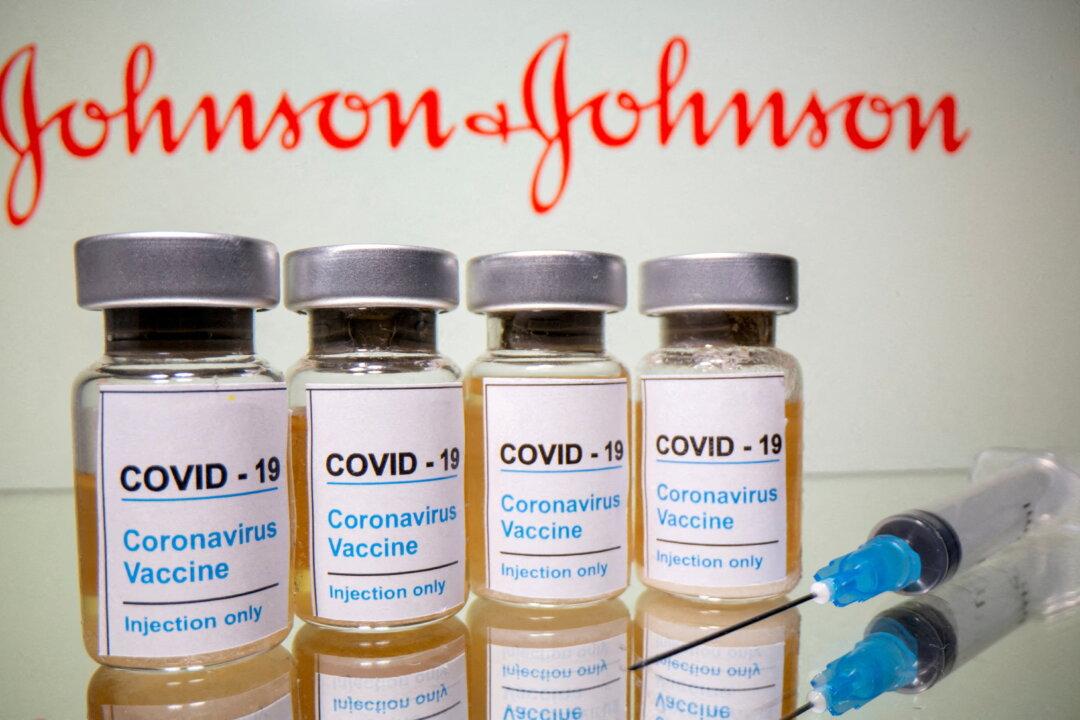Americans who received Johnson & Johnson’s single-shot COVID-19 vaccine are less protected against serious illness and hospitalizations than those who received an mRNA vaccine, and should likely consider getting a booster dose of either Pfizer’s or Moderna’s vaccine, according to new Centers for Disease Control and Prevention (CDC) data released Tuesday.
The data comes from a CDC report that analyzed 80,287 emergency department and urgent care visits across 10 states during a four-month period between Dec. 16, 2021, to March 7, 2022, when the highly transmissible omicron variant was dominant.




